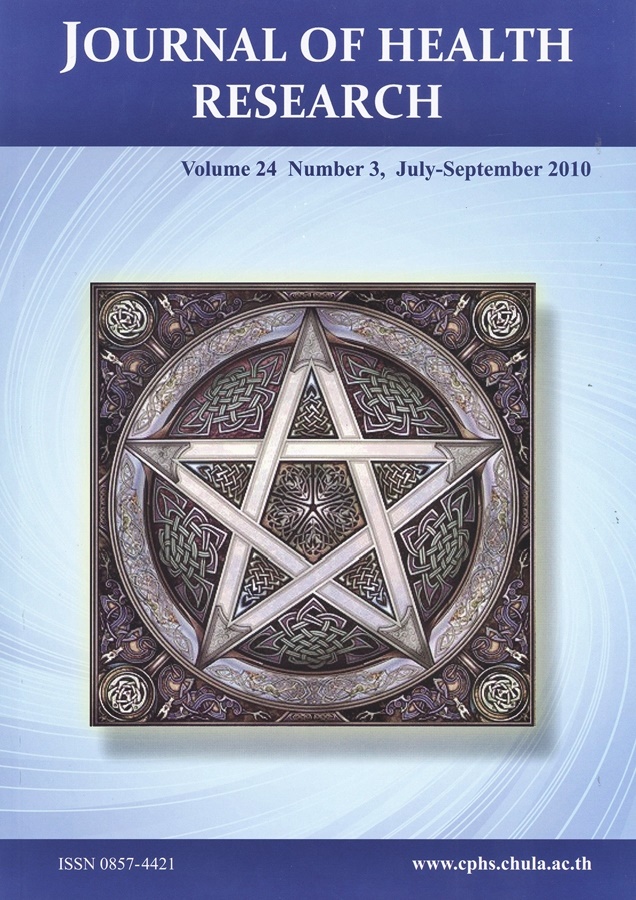Sensitivity and Specificity of Thai-Version Brief Medication Questionnaire
Keywords:
medication adherence tool, self-report, validity, sensitivity, specificityAbstract
Self-reported medication adherence tools are useful to screen non-adherence and barriers to non-adherence of patients in clinical practice. Having a reliable tool would facilitate pharmacists in monitoring patient drug use behavior. The purposes of this study were to develop the Thai-version Brief Medication Questionnaire (BMQ) and to validate it by examining sensitivity, specificity, positive predictive value (PPV), negative predictive value (NPV) and accuracy using pill count method as the comparison. The study recruited 229 patients with at least one chronic condition of diabetic, cardiovascular disease, or dyslipidemia who have been on their prescriptions for at least 4 weeks. The medication adherence of each patient was measured by 2 methods, i.e., BMQ and pill count method, at patient’s home approximately 2 weeks after receiving the most recent prescriptions. The results showed that the 7-item regimen screen of Thai-version BMQ had 100% sensitivity with 0.37% specificity for repeated non-adherence, and 100 % sensitivity with 0.27% specificity for sporadic non-adherence while the 6-item regimen screen had 59.26-62.04% sensitivity with 82.68-86.31% specificity for repeated non-adherence, and 22.65-29.13% sensitivity with 80.51-82.35% specificity for sporadic non-adherence. Kappa coefficient revealed the high relationship between 7-day and 14-day patient reports on non-adherence at 0.861 (95% CI 0.816 - 0.907). In conclusion, the Thai-version of BMQ could be used to detect patient medication non-adherence both repeated and sporadic.







